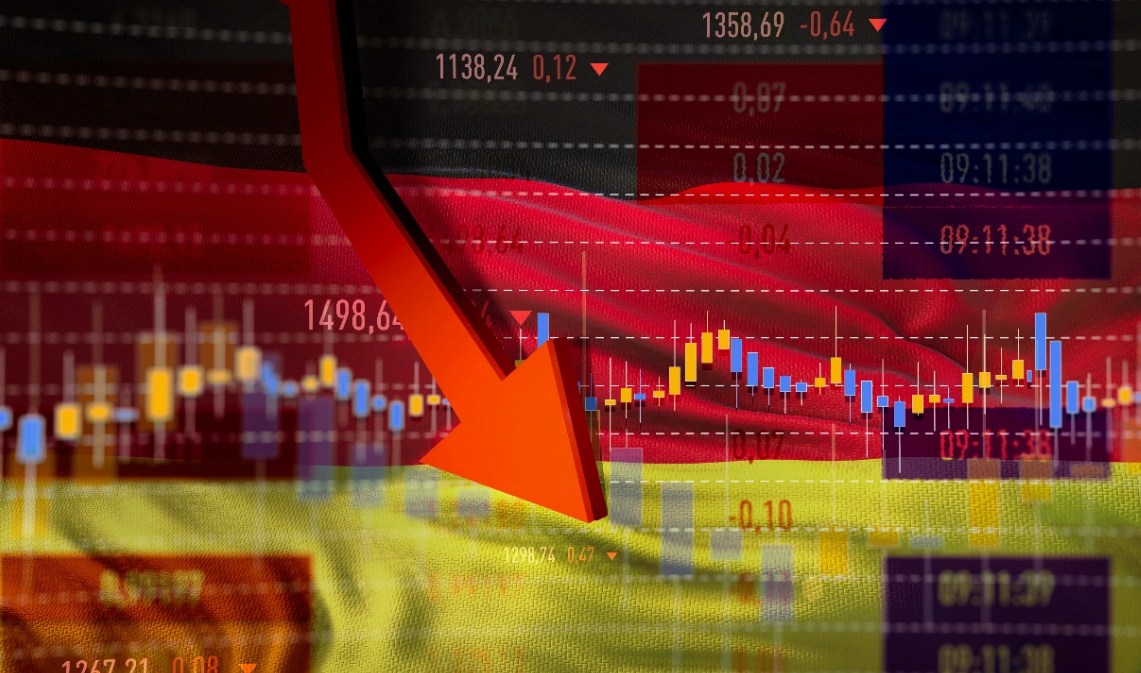An asymmetric trade deal between the EU and the US is set to worsen Germany’s recession. Yet neither policymakers nor corporate leaders show any willingness to implement the large-scale political changes needed to reverse course.
Germany’s economic data leaves little room for optimism. After contracting by 0.9% in 2023 and another 0.5% last year, the German economy is expected to shrink further in 2025.
The hardest-hit sectors are those that long fueled Germany’s prosperity: automotive, construction, and mechanical engineering. Without artificial support in the form of government subsidies—which now account for half of GDP—the private sector could contract by 4-5% this year.
Overall productivity has been steadily declining since 2018. This is also a social problem, as Germany’s welfare system supports hundreds of thousands of migrants living on state benefits. The economy must grow rapidly to prevent per capita prosperity from declining.
A new study by the German Chamber of Commerce and Industry (DIHK) confirms the obvious: the EU-US trade deal will particularly harm Germany’s export-driven economy.
According to the study, 58% of companies anticipate new challenges, rising to 74% among firms directly engaged in US trade. Only 5% expect benefits.
“This deal may have been politically necessary, but for many German companies, it’s a bitter pill to swallow,” said DIHK CEO Helena Melnikov. “Higher tariffs, increased bureaucracy, and reduced competitiveness—this is the price of diplomatic truce between Washington and Brussels.”
A blanket 15% tariff on exports to the US will hit car and machinery manufacturers hardest. Among US-focused firms, 89% expect immediate losses, 72% fear further tariff hikes, 80% worry about political arbitrariness in transatlantic trade, and over half plan to scale back US operations.
A May survey of 21,000 companies revealed only 23% held positive business expectations—down 5% from previous figures—while 30% anticipated further deterioration. In industry, one in three firms expects fewer orders.
Just 19% plan to increase investments, while a third intend to cut back. High energy costs, labor shortages, and political uncertainty are cited as key deterrents. The DIHK predicts a 0.3% recession for 2025, but adjusting for government spending, the real decline could reach 4-5%.
Daily surveys reinforce the same conclusion: Germany is undergoing rapid deindustrialization, losing hundreds of thousands of jobs in key sectors. The looming social security deficit is just the beginning. Yet both politicians and business leaders refuse to confront the issue honestly.
The Green Deal remains untouchable. German industry pays up to three times more for energy than US competitors and double what French firms pay. This drives energy-intensive businesses out of the country.
Few dare challenge Brussels’ climate agenda openly. A rare exception came in June, when a group of manufacturing representatives wrote an open letter to the chancellor, naming the Green Deal as a major cause of decline.
Most executives, however, avoid the topic. Mercedes-Benz CEO Ola Källenius blamed falling profits on “weak demand, high production costs, and US tariff uncertainty”—omitting any mention of the Green Deal. Volkswagen’s Oliver Blume called for lower energy prices and EV tax incentives—effectively demanding more subsidies to keep the “energy transition” alive.
Corporate leadership has fully aligned itself with the Green Deal. The energy transition has battered Germany’s industrial base, with sectors like construction and automotive veering off course.
Symbolic gestures—like a “Made in Germany” coffee chat involving 61 CEOs and the chancellor—epitomize corporate complacency. Large firms can adapt or relocate to circumvent regulations, but small and medium-sized enterprises (SMEs), the backbone of Germany’s Mittelstand, are collapsing.
The Green Deal’s bureaucratic burden ultimately benefits big corporations by eliminating smaller competitors.
The Mittelstand lacks political backing, with many fighting daily for survival—often ending in bankruptcy. In the first half of 2025, bankruptcies rose by 9.4% year-on-year, totaling 11,900.
There are still no signs of a climate policy shift. Germany’s corporate elite has failed to push for political change. The country now braces for a difficult autumn—both economically and socially.









